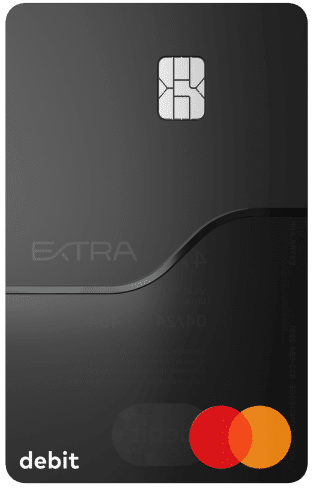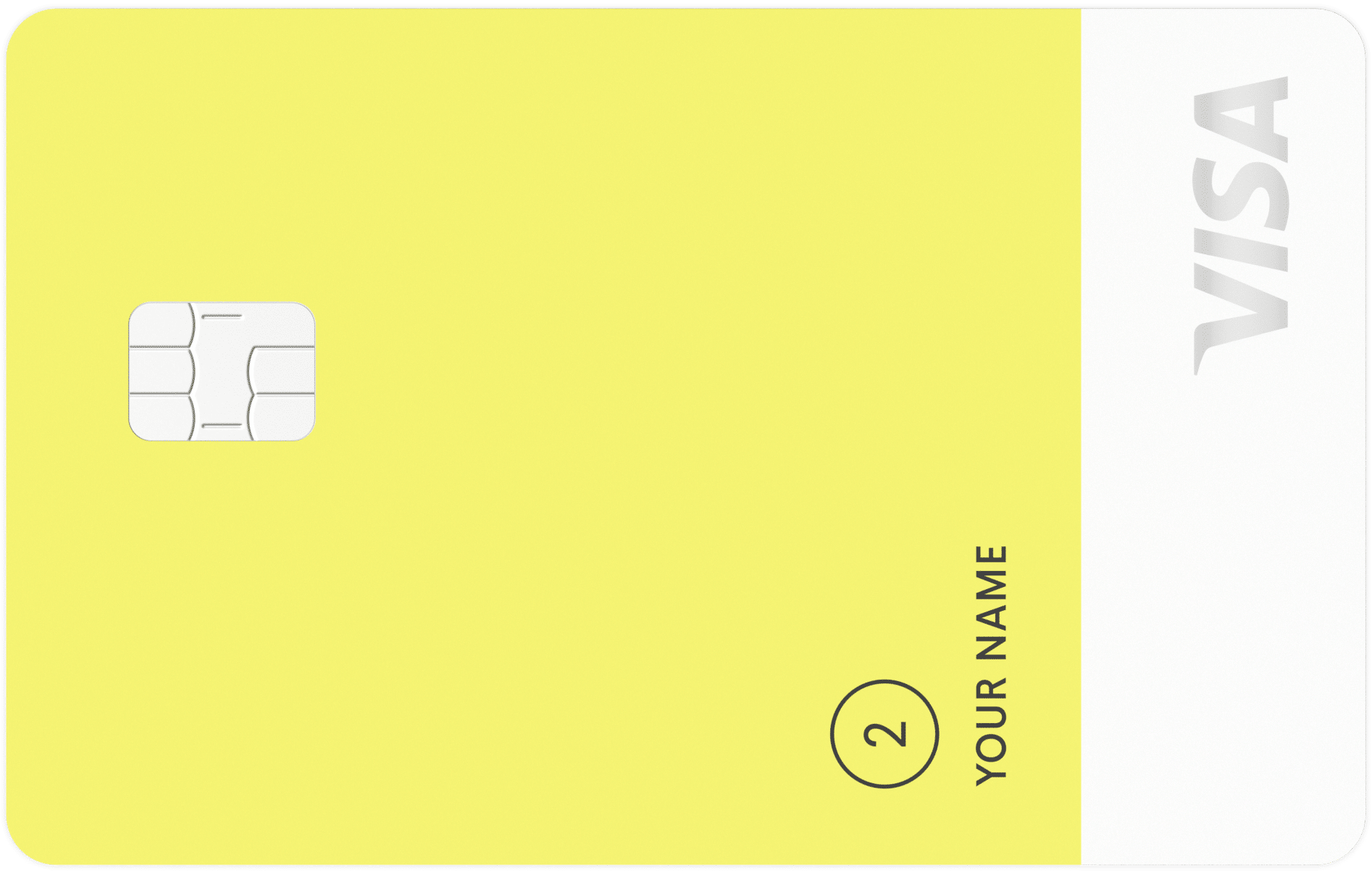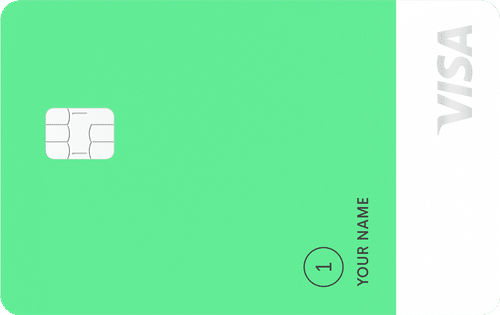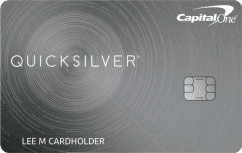
How to Get a Credit Card with No Credit History in 2025
Applying for a credit card with no credit history can be challenging, but it's not impossible. You can improve your chances of getting approved by getting your credit report, making sure you have a good payment history, considering a secured credit card, providing proof of income, and being patient.
Get started by comparing credit card offers online:
Compare Best Credit Card Offers
Best Credit Cards for Individuals with No Credit History
Not sure which credit card is right for you?
No worries, we've got you covered! Compare multiple credit card options to choose the best card for your needs.
How we chose the best credit cards with no credit history
When choosing the best credit cards for limited credit histories, we considered a number of factors, including:
- Ease of approval: We wanted to include cards that were likely to be approved for people with limited credit histories. This meant considering cards that didn't require a credit check, as well as cards that were known to be more lenient with approvals.
- Rewards: We wanted to include cards that offered some sort of rewards program, even if it was a small one. This would help people with limited credit histories start building their credit history while also earning some rewards.
- Fees: We wanted to include cards that had few or no fees. This would make them more affordable for people with limited credit histories, who may not be able to afford high annual fees or other fees.
- Features: We wanted to include cards that offered some useful features, such as a mobile app, online account management, or fraud protection. These features would make it easier for people with limited credit histories to manage their cards and keep their accounts safe.
How is credit history determined?
According to Experian, your credit score is a number that lenders use to assess your creditworthiness. It is calculated using a variety of factors, including the amount of debt you owe, your payment history, and the length of your credit history. Your credit score ranges from 300 to 850, with a higher score indicating that you are a more reliable borrower.
The two most important factors that contribute to your credit score are the amount of debt you owe and your payment history. The amount of debt you owe is a measure of your current financial obligations. Lenders want to see that you are able to manage your debt responsibly. Your payment history is a record of how you have made your payments on time in the past. Lenders want to see that you have a history of making your payments on time.
Other factors that can affect your credit score include the length of your credit history, the types of credit you have, and the number of inquiries on your credit report. However, the amount of debt you owe and your payment history are the most important factors.
No credit vs. bad credit: what's the difference?
Having no credit history and having bad credit are two different things. No credit means that you have never had a credit card or loan, and there is no record of your credit history. Bad credit means that you have had some problems with your credit in the past, such as missed payments or defaults.
Lenders look at your credit history to assess your risk as a borrower. A lack of credit history can make it difficult for lenders to predict your ability to repay debt obligations, so they may be hesitant to lend to you. On the other hand, bad credit history can indicate that you are a risky borrower, so lenders may charge you higher interest rates or require a cosigner.
There are a few things you can do to improve your credit history if you have no credit or bad credit. First, you can apply for a secured credit card. A secured credit card is a type of credit card that requires you to make a security deposit. This deposit is used to guarantee your payments, so it can help you build your credit history even if you have no credit history.
Second, you can make all of your payments on time. This is the most important thing you can do to improve your credit history. Third, you can keep your credit utilization low. Your credit utilization is the percentage of your available credit that you are currently using. Aim to keep your credit utilization below 30%.
Our recommendations
| Feature | Extra Card MasterCard | Petal2 Cash Back Visa | Petal1 No Annual Fee Visa | Capital One Quicksilver Secured Cash Rewards Card |
|---|---|---|---|---|
| Annual fee | $0 | $0 | $0 | $39 |
| APR | 25.99%+ | 16.49%-26.49% | 22.49%-27.49% | 26.99%+ |
| Rewards | 2% cash back on gas and groceries, 1% cash back on all other purchases | 2% cash back on all purchases, up to $1,000 in spending per month | 1% cash back on all purchases | 1.5% cash back on all purchases |
| Welcome bonus | $200 after you spend $500 on purchases in the first 3 months | $50 after you spend $500 on purchases in the first 3 months | N/A | N/A |
| Credit limit | $300-1,000 | $500-3,000 | $500-3,000 | $200-1,000 |
| Security deposit | None | None | None | Required |
| Foreign transaction fees | Yes | Yes | Yes | Yes |
| Other benefits | No welcome bonus, no foreign transaction fees | No welcome bonus, no foreign transaction fees | No welcome bonus, no foreign transaction fees | No welcome bonus, no foreign transaction fees |
Why is it important to establish your credit if you have no credit history?
Building credit with no credit history can be challenging, but it's important to get started. A strong credit score can lower your cost of borrowing, which can save you thousands of dollars over the course of your lifetime. It can also impact your ability to get a mortgage, rent an apartment, and determine your insurance premiums.
How can I get a credit card for the first time?
If you're looking to apply for a credit card for the first time and you have no credit history, there are a few things you can do to get started.
- Review your credit report. This will give you an idea of your current credit score and any potential red flags. You can get your credit report for free once a year from each of the three major credit bureaus: Equifax, Experian, and TransUnion.
- Evaluate your options. Consider your income, debt, and spending habits to determine what type of credit card is right for you. You may need to repay some debt, increase your income, or build a better credit score to get approved for a credit card.
- Compare rates and apply for a credit card online. There are many different credit cards available, so it's important to compare rates and fees before you apply. You can also use a credit card comparison tool to help you find the best card for your needs.
Some of the best options for applying for a credit card with no credit history include:
- Secured credit cards. These cards require an upfront deposit that is used as collateral if you miss a payment or default. The deposit is equal to the credit limit. For instance, if your credit limit is $500, you'll need to pay a deposit of $500. Interest rates and fees can be high, but these cards can be a starting point if you are unable to get approval for an unsecured credit card.
- Co-signed credit cards. A co-signer is someone who agrees to be responsible for your credit card payments if you default. This can help you get approved for a credit card even if you have no credit history.
- Retail credit cards. Store cards can have high-interest rates, but they can also be easier to get approved for as they are based on consumer loyalty.
- Student credit cards. If you're a college student, a student credit card can give you favorable credit terms with no fees. It can help you build your credit score while you're in college.
- Unsecured credit cards. These credit cards do not require a cash deposit for approval. Your credit limit is based on your income and credit history. Some issuers don't require a credit history, but you'll likely need to shop around as there are very few providers that allow this.
Pros and cons of getting a credit card for the first time
If you’re looking to lower the cost of your future borrowing and build your credit history, then you might want to consider getting a credit card. There are pros and cons and it’s a good idea to consider both.
Pros
- Build your credit history. A good credit history can help you get approved for loans, lower your insurance premiums, and get better interest rates on credit cards.
- Earn rewards. Many credit cards offer rewards programs that can save you money on travel, gas, or other purchases.
- Enjoy security features. Credit cards offer fraud protection and other security features that can help protect your finances.
Cons
- High interest rates and fees. Credit cards can have high interest rates and fees, which can make them expensive to use.
- Debt. If you don't use your credit card responsibly, you can easily end up in debt.
- Overspending. It's easy to overspend when you're using a credit card, especially if you're not tracking your spending carefully.
What to look for when applying for a credit card for the first time
When applying for a credit card for the first time, ensure you shop around comparing rates and fees. Some fees to consider are late payment fees, foreign transaction fees, and annual fees. Issuers can also have reward programs such as cashback that can save money on your monthly expenses.
If you carry your balance forward to the next month, you’ll have interest charges added on to your next payment. Credit cards are known for having high-interest rates. As interest accrues month on month, this can quickly spiral out of control. Be mindful of signing up for a credit card that will be affordable for you.
What do I need to apply for a credit card if I have no credit history?
When applying for a credit card, you’ll need to meet certain requirements to obtain approval. Some of these requirements include:
- Be at least 21 years old: If you are under 21, you will likely need parental permission and proof of income.
- Source of income: To qualify for a credit card you’ll need to make enough money to pay your credit card off every month.
- Social security number: You’ll need your social security number before applying.
When you apply for a credit card, a hard credit inquiry is made which temporarily dings your credit score. To avoid doing multiple hard credit inquiries, certain card issuers allow you to prequalify for a credit card.
When you have no credit history, secured credit cards, student credit cards, store credit cards, or even using a co-signer can help you get approval.
What happens if my application is denied?
If your credit card application is rejected, don't give up yet. Here are some things you can do:
- Ask your lender why your application was turned down. This will give you an idea of what you need to do to improve your chances of being approved in the future.
- Check your credit report for errors. Even a small mistake can hurt your credit score and make it more difficult to get approved for a credit card.
- Improve your credit history. This means making all of your payments on time and in full each month. You can also increase your credit limit by paying down your existing debt.
- Increase your income. This will give you a better debt-to-income ratio, which lenders look at when they're considering your application.
- Consider a secured credit card. This type of card requires you to make a deposit, which is used as collateral if you default on your payments. This can help you build your credit history even if you have no credit history.
By following these tips, you can improve your chances of getting approved for a credit card in the future.
In summary
It can be a challenge to get started with building a credit history as many credit card providers require a track record to make a judgment on your creditworthiness. However, it’s important to start as soon as you can, as a strong credit history can lower the cost of borrowing, saving you money over the long run.
Ensuring you pay your monthly payments on time will build up your credit score. Plus, you could be eligible for various rewards and perks. If you’re having difficulty getting approved, there are various alternatives such as a secured credit card, student credit card, or retail credit card which can be approved with fewer requirements.
However, it’s important to note that credit cards have notoriously high-interest rates that compound over time if balances are carried forward month after month. If not handled with care, this can lead you further into debt, worsening your credit score.
Quick links

What Type of Credit Card Do You Need?
Find Best Credit Card Offers
Credit Cards By Category
0% APR Credit Cards
Airline Credit Cards
Balance Transfer Credit Cards
Business Credit Cards
Cash Back Credit Cards
Hotel Credit Cards
Low Interest Credit Cards
No Annual Fee Credit Cards
Prepaid Credit Cards
Rewards Credit Cards
Secured Credit Cards
Student Credit Cards
Travel Credit Cards
Credit Card Issuers
Capital One®
Chase®
Citi®
Credit One Bank®
Mastercard®
Visa®
Advertiser Disclosure: The card offers that appear on this site are from companies from which Pasha Funding receives compensation. This compensation does not impact how or where products appear on the site. Pasha Funding does not include all card companies or all card offers available in the marketplace.
Pasha Funding credit card marketplace is designed to provide you a free and transparent platform that allows you to make side-by-side comparisons of financial products so that you can make educated decisions as to what product best suits your needs. Pasha Funding is not a bank, lender or credit card issuer. Pasha Funding strives to keep the information contained on the site accurate and up-to-date. All information contained in the site is provided without warranty or guarantee. The information on the bank, lender or card issuer's ("financial institution") site may be different than the information on the Pasha Funding site. Products and offers are subject to change and the offers and terms displayed may not be available to all consumers. When evaluating products and offers, please review the financial institution's website for current information, as well as all terms of service and the specific terms and conditions of each product and offer prior to applying for the product.
*About estimated credit scores - There are various types of credit scores that credit bureaus have and that credit card issuers use to make lending decisions. The credit score ranges presented are determined by our editorial team and not by the credit card issuers on Pasha Funding.












